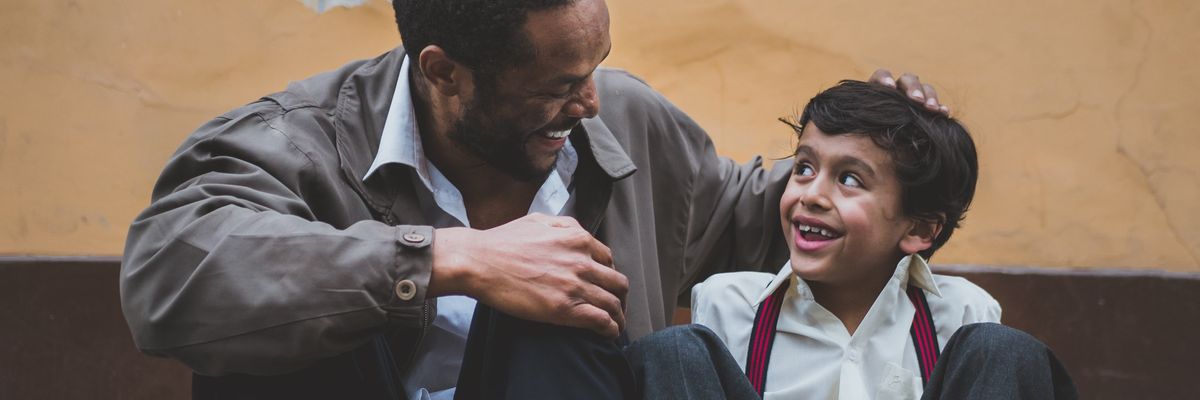
Experts in science and mental health have consistently shown that a person's mental well-being is largely shaped by their environment, lifestyle, and other factors. Beyond this, there are deeply ingrained social constructs rooted in cultural norms, such as machismo and marianismo. While many might be familiar with the concept of "machismo," "marianismo" might be less understood. How do they differ?
It's important to know that a person's mental health can be significantly influenced by these factors, especially within the Latine community, where mental health is still a topic shrouded in stigma. Both machismo and marianismo, although different, can contribute to negative mental health outcomes for individuals within the Latine community. These cultural norms not only perpetuate harmful beliefs and behaviors but also lead to societal shaming of those who attempt to break away and challenge these detrimental patterns.
What is machismo and marianismo?
 Photo by Fa Barboza on Unsplash
Photo by Fa Barboza on UnsplashMachismo is a social construct that promotes exaggerated masculinity, or the traits that are often attributed to masculinity, such as dominance and aggression. Machismo is also an ideology that deems women inferior to men and promotes the denial of women from participating in work or lifestyles that are associated with power or independence in any way. This can include everyday behaviors such as the ability to drive a car or manage money. It promotes the marginalization of women and, in doing so, ultimately harms men themselves.
Machismo is often preceded by marianismo, a term we don't hear about as often, but that plays a role in the execution of machismo as a belief system within society and, more specifically, Latino culture.
Marianismo is a twisted perception of the female gender as a one-dimensional being with specific characteristics often attributed to feminity, such as self-sacrifice, sexual purity, taking care of others, morality, subordination, and self-silencing.
Connected with both machismo beliefs and those of the Roman Catholic Church, marianismo also promotes the idea that women are spiritually superior to men and should therefore be a pillar of spiritual strength within the family. Furthermore, it leads to the belief that seeking help from a mental health professional goes against religion as there's difficulty secularizing human needs from religious convictions.
Political Scientist Evelyn P. Stevens wrote an essay on the subject. She points out that sometimes, women cling to this role and continue to teach machismo ideals to their sons, daughters, grandchildren, etc. While this may be more of a generalized take, as Latina women have certainly evolved, we can't deny that we still see these behaviors in modern society.
How do machismo and marianismo impact mental health?
 Photo by Joice Kelly on Unsplash
Photo by Joice Kelly on UnsplashSo, how are machismo and marianismo directly related to poor mental health in the Latino community? Both of these systems promote ideas that put a human being into a box or pedestal that's hard to get out of.
For machismo, the idea that a man should be "stronger" both mentally and physically makes it hard to express emotions and, furthermore, accept the need for help and vocalize it. Marianismo, on the other hand, promotes the acceptance of toxic behaviors from the woman's side.
When put side by side, it's as simple as a man that believes they can and should assert power over women either physically or emotionally, who will more often than not use that power to harm them. A woman with a marianismo belief system will believe they need to accept this behavior, which will result in emotional manipulation, physical abuse, anxiety, depression, or even suicide on both parts.
This study by the US National System of Health revealed that "specific components of machismo and marianismo were associated with higher levels of negative cognitions and emotions after adjusting for socio-demographic factors."How does it affect people through various developmental processes?
 Photo by Sebastián León Prado on Unsplash
Photo by Sebastián León Prado on UnsplashFrom the early stages of development, when their parents or caregivers teach a child different behaviors and beliefs, a child can be affected by machismo and marianismo, both from learned behaviors (seeing how the member of their family interact) and from directly being taught these ideologies. We often see this happen in our community when a boy is told, "don't cry, boys don't cry," or when a girl is told, "don't be too loud," "be a lady."
And as these children grow into teenagers and young adults, it turns into "it's normal for him to get angry and get into fights, boys will be boys" and "that skirt is too short, go change." These children turn into active members of society when they turn into adults, and they can either continue to perpetuate these ideologies or fight against them, regardless, the harmful impact on their mental health is made, and they must now actively try to better themselves by seeking professional help and breaking toxic cycles.
What can we do to take action against machismo and marianismo?
We have to be aware and shine a light on these issues, educating ourselves and then our families so that toxic generational cycles can be broken and mental health can finally be destigmatized in the Latine community. It is important to promote mental health so that our loved ones and other members of the community don't have to suffer in silence
Mental Health Resources
This article, created by Mental Health America, will navigate through various statistics, learning material, and resources to seek professional help. Here are a few of the many you will find:
- Therapy for Latinx: national mental health resource for the Latine community; provides resources for the Latine community to heal, thrive, and become advocates for their own mental health.Therapist Directory
- Latinx Therapy: breaking the stigma of mental health related to the Latine community; learn self-help techniques, how to support self & others.
- The Focus on You: self-care, mental health, and inspirational blog run by a Latina therapist.
If you or somebody you know is thinking about suicide or is in severe emotional distress, please contact:
National Suicide Prevention Lifeline
- Call 1-800-273-TALK (1-800-273-8255)
- Use the online Lifeline Crisis Chat
Both are free and confidential. You’ll be connected to a skilled, trained counselor in your area.
For more information, visit the National Suicide Prevention Lifeline
You can also connect 24/7 to a crisis counselor by texting the Crisis Text or texting HOME to 741741.
- Are You Normalizing Machismo in Your Everyday Life? ›
- Can Latino Fathers Redefine Masculinity and Overcome Machismo? ›
- Why is it Socially Acceptable for Men, but not Women, to Hold Onto Childhood Interests? - Luz Media ›
- Is Your Behavior Machista? Probably. - Luz Media ›
- Does Emotional Manipulation Lurk within Our Family? - Luz Media ›
- What's in a Name? Hispanic, Latino, and More Explained - Luz Media ›
- Archaic Holiday Family Party Questions: A Modern Latina's Guide - Luz Media ›
- Understanding Weaponized Incompetence - Luz Media ›
- 10 Signs That Man You’re Considering Dating is Machista - Luz Media ›
- How Catholic Guilt Shaped My Life - Luz Media ›
- How We Talk About Mental Health as Latinos Needs to Change - Luz Media ›











